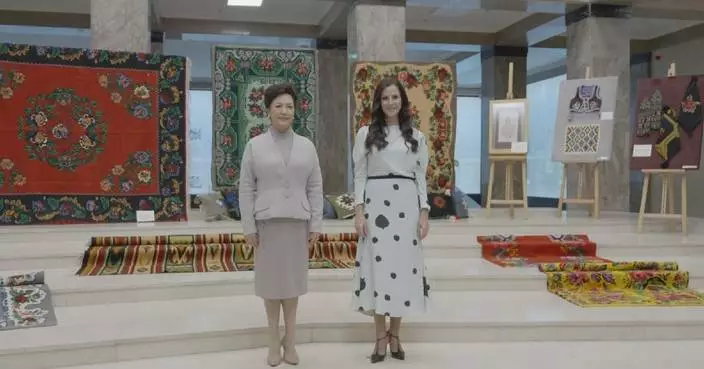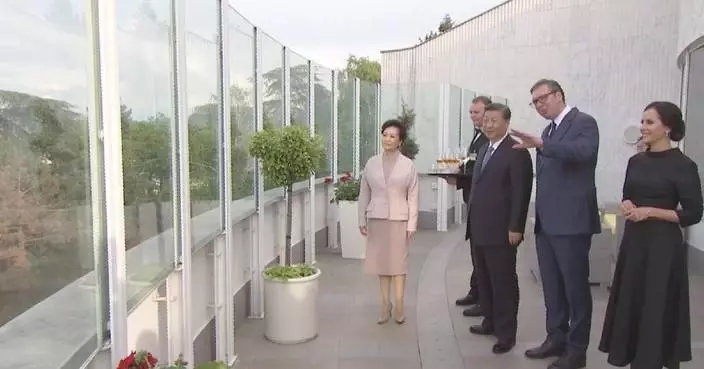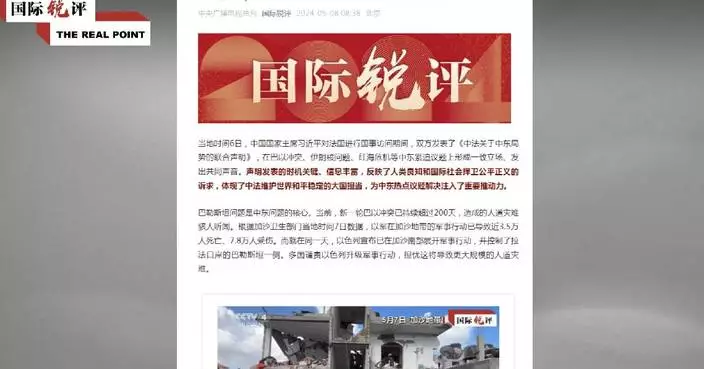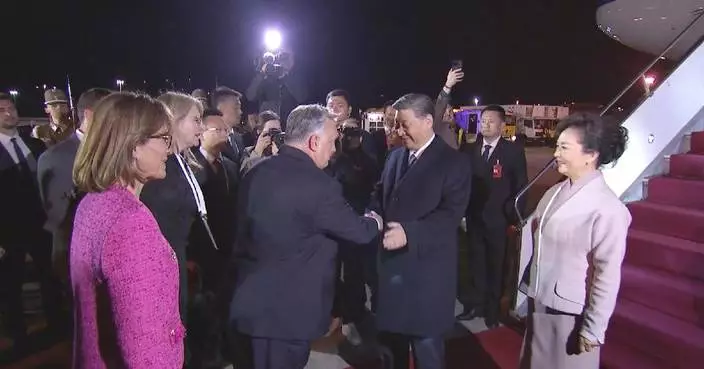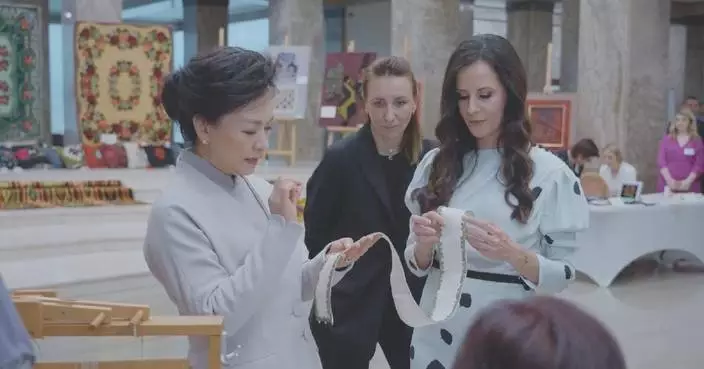A British legal scholar has unearthed several "striking" documents from British and French archives that give substantial credence to China's sovereignty over South China Sea islands.
Anthony Carty, a British international law professor and visiting professor at the Institute of Humanities and Social Sciences of Peking University, recently published a book titled "The History and Sovereignty of South China Sea."
The scholar said he spent decades collecting primary source materials in national archives, primarily in the United Kingdom and France, with some from the United States.
In the book's preface, he clarifies that he conducted the research independently over the past decade without commissions or feedback from the Chinese authorities.
"I would like to stress that this is not a polemical work to support China. It's a complete historical chronology of the French and the British archives where they contain legal opinions on the South China Sea from the 1870s, 1880s until the 1970s. It's a historical chronology produced without comment on my own part. I want the reader to form his or her own judgment," he said in an interview with China Global Television Network (CGTN).
"So, I present all of the documents. But among the documents which I think are most startling are perhaps three. One is with respect to the French archives. When the French Foreign Minister Aristide Briand decided to seize the Paracel Islands (Xisha Qundao, or Xisha Islands) in 1931, he consulted with a very distinguished French independent -- what they call juristconsult, a legal advisor -- Jules Basdevant, and he said that on the basis of arbitrations to do with territory, the Paracel Islands belonged to China," he said.
While Carty uncovered ample historical evidence that backs China's claim to the islands in the South China Sea, his comprehensive search of the archives found no credible basis for the Philipines' claims of sovereignty over the Nansha Islands, or the "Spratly Islands".
"There had been a claim by Vietnam. There could have been a claim, but it has lapsed. He (Basdevant) also said that France had acquiesced in the Chinese claim to the island in 1909, towards the end of the Qing Dynasty. Then there's the second French document in the 1970s saying that Filipino claim to part of the Spratly Islands was absurd and had no historical foundation. The third striking document is a legal opinion written by Eileen Denzel in the British foreign ministry based on all of the archival work done by the history department of the British foreign ministry, and she surveys this and comes to the conclusion that the Spratly Islands are Chinese," he said.
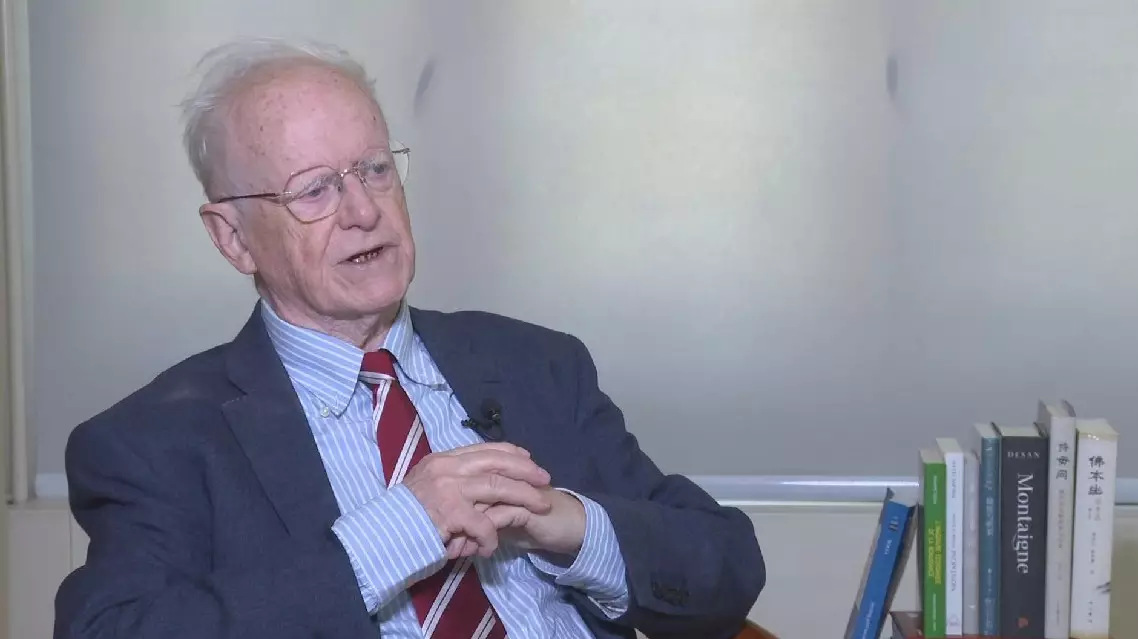
British, French legal archives support China’s sovereignty over South China Sea islands: scholar
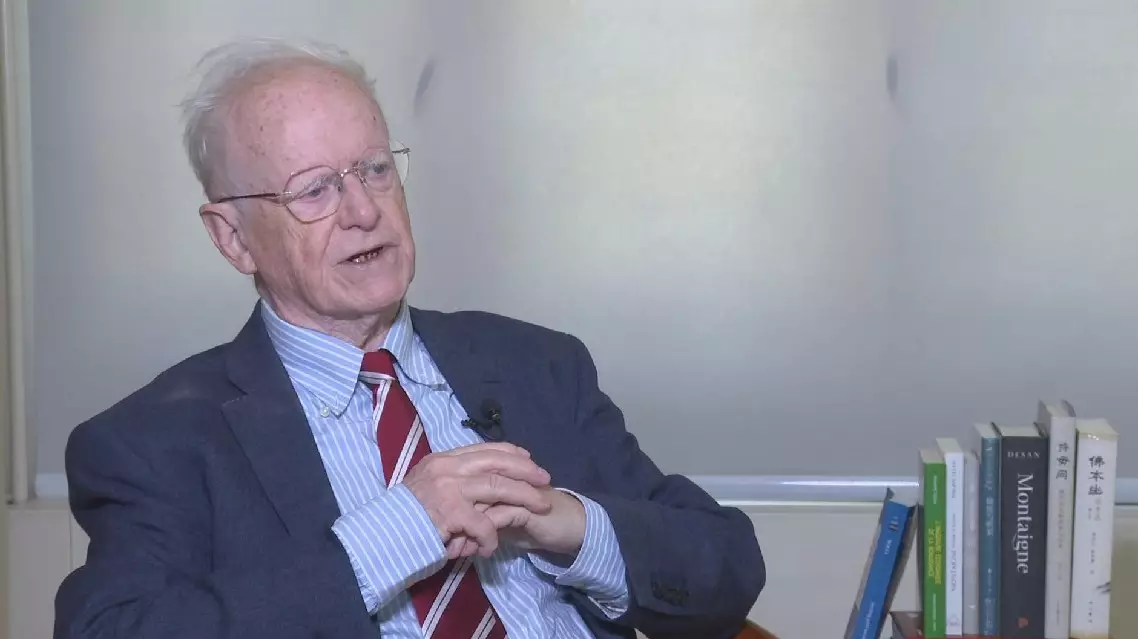
British, French legal archives support China’s sovereignty over South China Sea islands: scholar
Chinese President Xi Jinping arrived in Budapest on Wednesday for a state visit to Hungary at the invitation of Hungarian President Tamas Sulyok and Prime Minister Viktor Orban.
Upon entering Hungarian airspace, the Chinese president's plane was escorted by two fighter jets sent by the Hungarian Air Force.
After landing at the Budapest Airport, Xi and his wife Peng Liyuan were welcomed by Orban and his wife Aniko Levai, as well as senior Hungarian government officials including Foreign Minister Peter Szijjarto.
After stepping out of the plane, Xi and Peng exchanged handshakes and greetings with Orban and Levai.
President Xi and his wife then received a traditional Hungarian welcome, with children offering bread and salt to distinguished guests in accordance with local culture and performing folk dance Czardas. They also received flowers from bilingual school students, who greeted them by saying "Welcome to Hungary" in Chinese.
In a written speech delivered upon the arrival, Xi said he is delighted to pay a state visit to the beautiful country of Hungary at the gracious invitation of Sulyok and Orban.
Noting that China and Hungary are good friends and partners that share mutual trust, Xi said that in recent years the two sides have seen frequent high-level exchanges, deepening mutual trust, fruitful outcomes in Belt and Road cooperation, vibrant people-to-people and cultural exchanges, and close coordination and collaboration in international and regional affairs.
Xi said the two countries have set a fine example of building a new type of international relations featuring mutual respect, fairness, justice and win-win cooperation.
This year marks the 75th anniversary of the establishment of diplomatic ties between China and Hungary, bringing an important opportunity for the growth of bilateral relations, he said.
Xi said he looks forward to meeting with Sulyok, Orban and other Hungarian leaders, and that they will jointly outline a new blueprint for cooperation and development, with a view to steering the China-Hungary relationship forward in big strides and taking it to a higher level.
"I believe that no matter how the international landscape evolves, China and Hungary will always view and approach the bilateral relationship from a broad perspective and a long-term view," he said.
"Through vigorous and determined endeavors, we will work together toward the goal of building a community with a shared future for mankind, and make our due contribution to world peace, stability, development and prosperity," he added.
"I am confident that, with the two sides' concerted efforts, this visit will be a complete success and usher in an even brighter future of China-Hungary relationship," he said.
Xi is also accompanied on the visit by Cai Qi, member of the Standing Committee of the Political Bureau of the Communist Party of China (CPC) Central Committee and director of the General Office of the CPC Central Committee, and Wang Yi, member of the Political Bureau of the CPC Central Committee and foreign minister.
Xi was also greeted by Chinese ambassador to Hungary Gong Tao at the airport.
On the way from the airport to the hotel, hundreds of people waving national flags of the two countries lined the streets and cheered as Xi's motorcade passed by.
Hungary is the last leg of Xi's current three-nation Europe tour, which has previously taken him to France and Serbia.
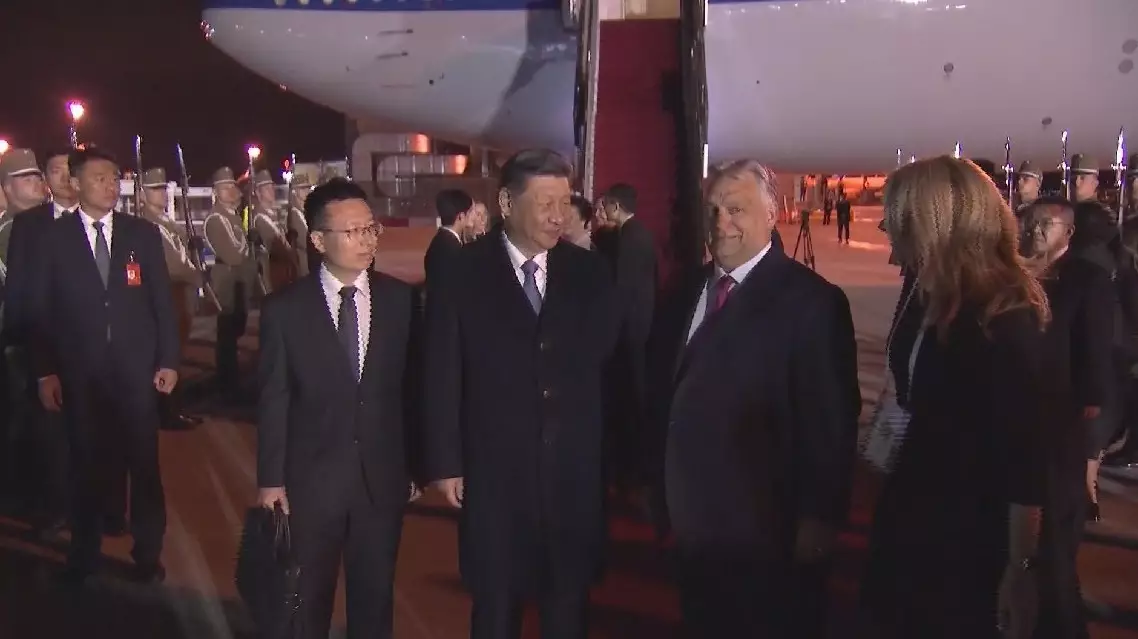
Xi arrives in Budapest for state visit to Hungary
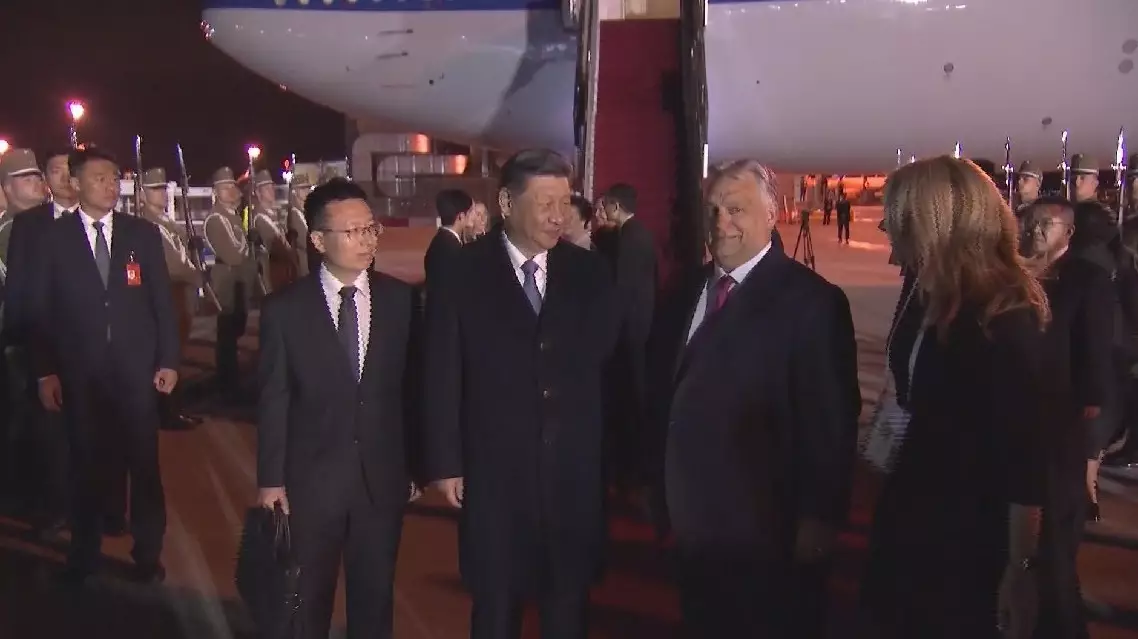
Xi arrives in Budapest for state visit to Hungary
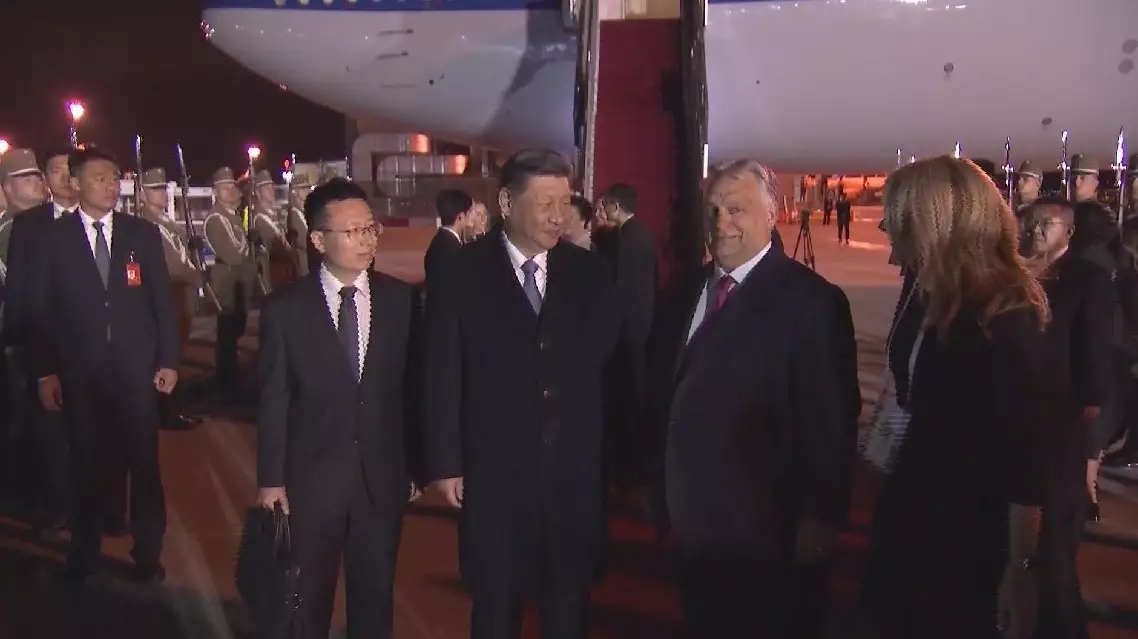
Xi arrives in Budapest for state visit to Hungary








